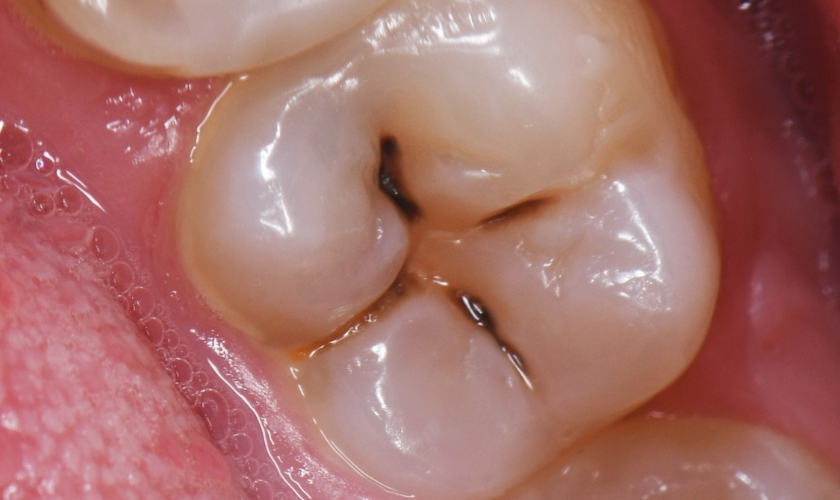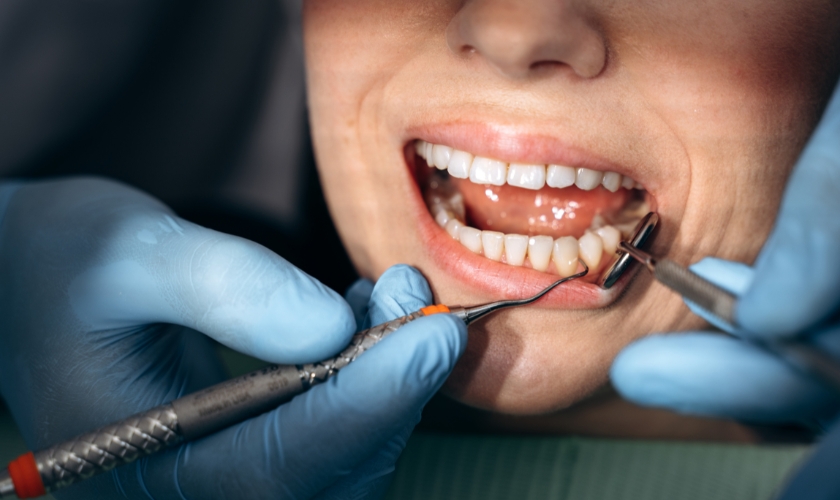What Exactly Is a Cavity?

Cavities are common dental conditions that can afflict individuals of any age. But what exactly is a cavity? Simply put, a cavity is a small hole that forms when a tooth decays. This decay is usually the result of the buildup of plaque—a sticky, bacteria-laden film on the teeth. Cavities can cause more significant dental issues if they are not corrected. Understanding the nature of cavities and how they develop can help you take better care of your oral health.
How Do Cavities Form?
Cavities develop through a process involving several key stages:
- Plaque Buildup: Plaque forms when bacteria in your mouth mix with food particles and saliva. This film sticks to your teeth, particularly in hard-to-reach areas.
- Acid Production: Plaque bacteria generate acids when they break down sugars from food. These acids erode the enamel, the tooth’s protective outer layer.
- Enamel Erosion: Over time, the acid wears away the enamel, creating small holes or soft spots in the tooth.
- Decay Progression: If the erosion continues, it reaches the softer dentin layer beneath the enamel, leading to more severe damage and pain.
Common Symptoms of Cavities
Recognizing the signs of cavities early can prevent more extensive dental issues. Look out for:
- Tooth Sensitivity: Sensitivity to hot, cold, or sugary foods can indicate the presence of a cavity.
- Toothache: Persistent or sharp pain in a tooth may signal that a cavity is forming.
- Visible Holes or Stains: Dark spots or holes in your teeth are visible signs of cavities.
- Bad Breath: Persistent bad breath can be another symptom associated with cavities and other dental problems.
What are the Risk Factors for Cavities?
There are several things that can make you more likely to get cavities:
- Diet: Consuming sugary and acidic foods frequently can accelerate tooth decay.
- Oral Hygiene: Inadequate flossing and brushing cause plaque to form and harm your teeth.
- Dental Health: Previous dental work or untreated dental issues can make teeth more susceptible to cavities.
- Dry Mouth: Since saliva neutralizes acids, decreased salivary flow can raise the risk of cavities and wash away food particles.
How to Prevent Cavity?
Preventing cavities involves maintaining good oral hygiene and making smart dietary choices:
- Brush Frequently: Try to brush your teeth twice a day with fluoride toothpaste. This helps to remove plaque and strengthen enamel.
- Floss Daily: Flossing helps clean between teeth where a toothbrush can’t reach.
- Limit Sugary Foods: Lower your intake of sugary and acidic foods to minimize plaque buildup and acid production.
- Regular Check-ups: Visit your dentist in Rocklin for routine cleanings and examinations. They can detect cavities early and provide necessary treatments.
How Can You Treat Cavity?
If a cavity does form, it’s crucial to seek treatment to prevent further damage:
- Fillings: One of the most popular methods of treating cavities, fillings restore the tooth’s shape and function after decay has been removed.
- Crowns: For more extensive damage, a crown may be placed over the tooth to protect it and restore its function.
- Root Canals: In severe cases where the decay has reached the tooth’s nerve, a root canal may be required to remove the infected tissue and seal the tooth.
Keeping Your Teeth Healthy
Understanding what exactly a cavity is and how it forms is vital for effective prevention and treatment. By practicing good oral hygiene, making wise dietary choices, and scheduling regular dental visits, you can keep your teeth healthy and cavity-free.
If you have concerns about your dental health or suspect you may have a cavity, consult a dentist in Rocklin for expert advice and care.




